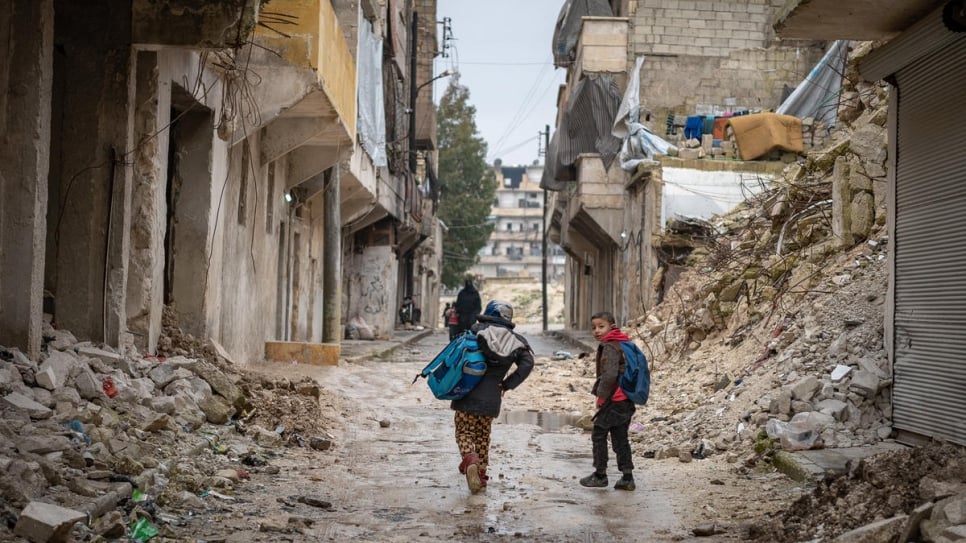Since Covid-19’s outbreak in 2020, Qatar has provided aid to several nations to help the world grapple with the disease’s impact.
Qatar Red Crescent Society (QRCS) is monitoring the distribution of Covid-19 vaccines by the World Health Organization (WHO) to tens of thousands of displaced Syrians in northern Syria, Doha’s state news agency (QNA) reported on Wednesday.
A total of 29 QRCS staff are overseeing the vaccines distribution under the second phase of WHO’s campaign in northern Syria which started in August, covering the countryside of Aleppo and Idlib.
The programme aims to provide global access to the much-needed vaccine. The efforts include the placement of 50 vaccination stations in addition to more than 100 mobile teams across areas covered by the campaign.
The Johnson & Johnson and Sinovac vaccines are being distributed to health and humanitarian professionals as well as the public aged 18 and above.
According to QNA, 22,393 of the targeted community received the vaccines in the campaign’s first phase alone. The second phase will continue until February next year, when it hopes to reach the WHO’s required number of vaccinations.
Qatar’s calls for vaccine equality
Since Covid-19’s outbreak in 2020, Qatar has provided aid to several nations to help the world grapple with the disease’s impact.
Last year, Qatar Charity said it had donated more than $24 million in Covid-19 aid to 60 countries as part of a global response to the pandemic. QRCS had also pumped millions worth of medical equipment and protective supplies to several countries around the globe to combat the pandemic.
In April of 2021, Qatar announced a major $100 million initiative to vaccinate more than three million refugees and displaced people in 20 countries around the world.
The initiative aimed at benefiting at least 3,650,000 of vulnerable populations, including internally displaced people and migrant communities.
Last year, Qatar also partnered with the Global Alliance for Vaccines and Immunisation by providing the entity with $10 million to support its efforts in purchasing 1.3 billion doses.
Syrian refugee crisis
The Syrian refugee crisis continues to worsen amid the ongoing violence led by Syria’s Bashar Al Assad regime.
The ongoing war in Syria has resulted in 6.8 million refugees globally, representing the highest number reported.
According to the United Nations, there are 82,602 refugees at the Zaatari Camp, where tens of thousands of babies have since been born. UN figures state that more than 20,000 births have been recorded in the camp, equating to at least 40 babies being born every week.
The Syrian Network for Human Rights (SNHR) said that at least 1,271 civilians, including 229 children, and 104 victims of torture were killed in Syria in 2021 alone.
The UN Human Rights Office estimates more than 306,000 civilians have been killed over the span of 11 years in Syria, with independent rights groups estimating the number to be much higher.
In September, Qatar’s Amir Sheikh Tamim bin Hamad Al Thani slammed the lack of action in holding war criminals in Syria accountable and ending the suffering of the Syrian people.
“In our region the international community has failed to hold the war criminals in Syria accountable for what they [are] perpetuating. And in further disillusionment, some are seeking to turn the page on the tragedy of the Syrian people,” Amir Tamim told the UN.
The Qatari leader urged a need to address the concerns and respond to the plight of the Syrian people, including millions of refugees who have been forced out of their homes during the decade-long war.
“We must pay attention to the roots of the issues before their impacts knock on the doors of our countries,” said the amir.







